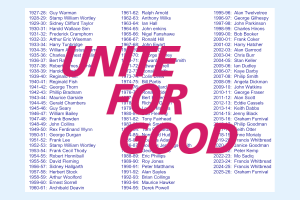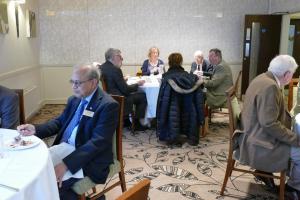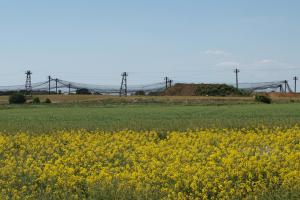Rtn Angela Dickman: My very first job
Thu, Jan 20th 2022 at 12:45 pm - 2:00 pm
Angela told us about the summer job she had before going to university.

At today’s online meeting Angela Dickman told us about her first job. It was one she had in the summer of 1957 between leaving school and going to university.
At the time her family were living in Benfleet. She decided to look for a job in Southend and discovered she could buy a “workman’a ticket” for 7/6d (37½p). This gave seven days’ travel for the price of five but there were restrictions on the times it could be used. She was so confident that she would get a job in Southend that she bought one.
She took a packed lunch with her. She planned to walk down the left-hand side of the high street, calling at shops that advertised vacancies, and then stop on the sea front to eat her packed lunch before walking back on the other side.
The first two shops she tried were a department store, which had a vacancy in its shoe department, and a shoe shop. Both wanted staff with experience, so she went walking on.
The next shop she found advertising a vacancy was a grocer’s shop under a railway bridge. She went in and told the manager she was looking for a job. “Good,” he said. “The pay is £3 19s 6d (£3.97½p) a week. When can you start.” She told him she could start the following day.
She then spent the rest of a leisurely day in Southend before the time arrived when she could use her ticket to get back to Benfleet.
They put her on the cheese and butter counter. This sold a limited selection of cheeses, most at 3/6d a lb (17½p a lb or 8p per kilo). She had to bring large slabs of cheese from the store room and then cut them down to more manageable sizes using a cutting board with a wire rather than a blade. Customers would not tell her what weight they wanted but instead indicate where she should use the wire to cut the size they wanted.
 She would then weigh the cheese on scales which looked something like an inverted triangle. At the top the pointer would point to the weight. She could then read down the side until she came to the price per pound and look across until the price line met the pointer. That indicated the amount to be charged.
She would then weigh the cheese on scales which looked something like an inverted triangle. At the top the pointer would point to the weight. She could then read down the side until she came to the price per pound and look across until the price line met the pointer. That indicated the amount to be charged.
The price had to be “rung up” on a mechanical till by pressing simultaneously on £ s and d keys. The till drawer would then open with some force!. She would put the money the customer gave her on top of the till until the customer had checked the change, in case there was a query. The manager never asked her whether she could calculate the change; in those days it was assumed everyone could.
She was later transferred to the ham and bacon counter, where the meat had to be cut on a device using a spinning blade. She managed to operate it without injury but she did make sure she used the guard.
The shop did well from commuters getting the ingredients for a packed lunch. They would go into the grocer’s shop for their cheese and butter and/or their ham or bacon. (Customers had to pay separately at each counter but no one ever complained or thought it strange.) After that they could go to the neighbouring greengrocer’s for any fruit they wanted and finally to the baker’s shop next to that for bread or a roll. The same company owned all three shops!
Angela said she spent a very happy summer working in the shop. When she left to go to university the staff gave her a small bottle of perfume as a leaving present. Over the summer she saved enough to buy herself some new clothes, the books she needed for her course, and food for her first term.
'What We Do' Main Pages:










